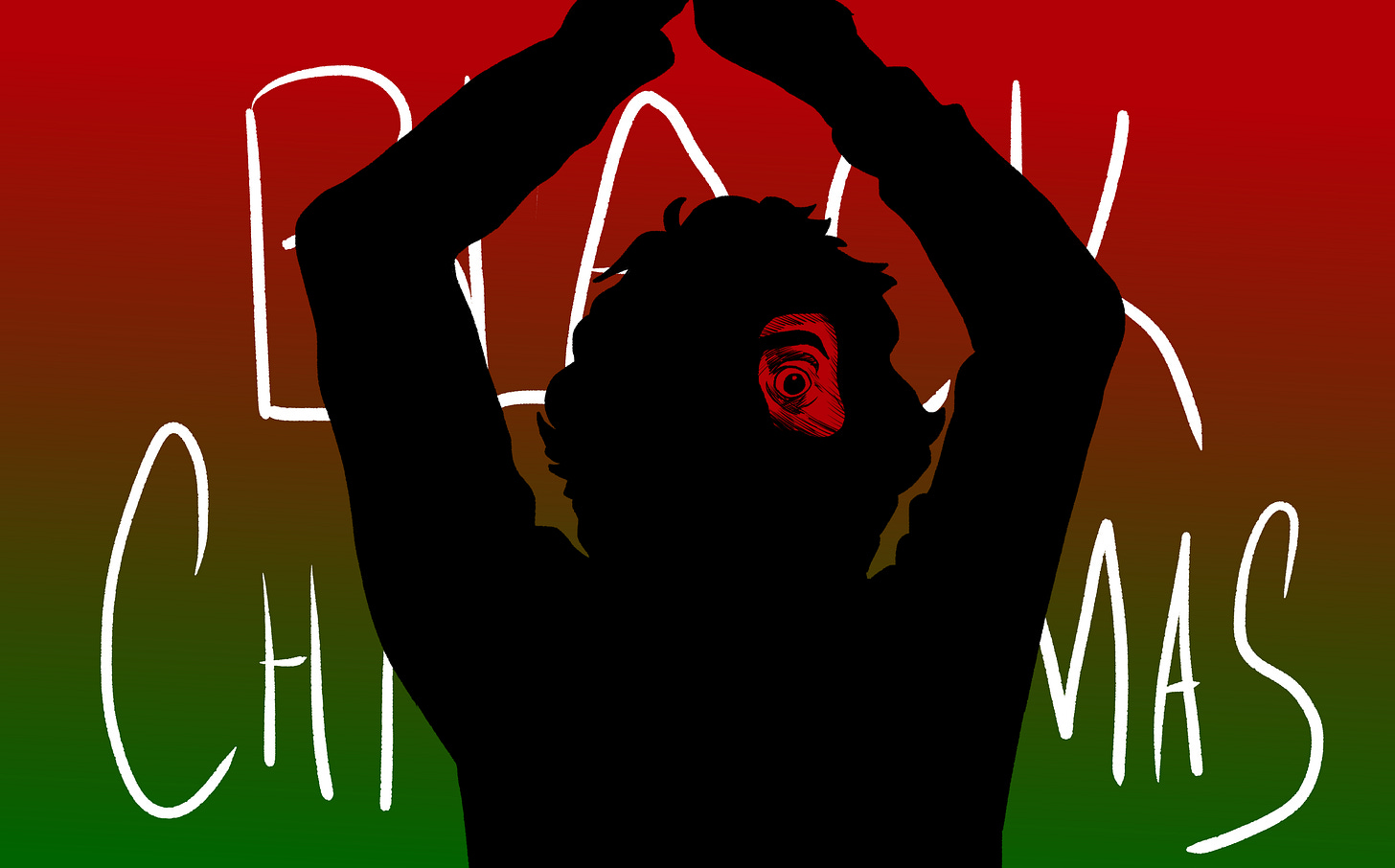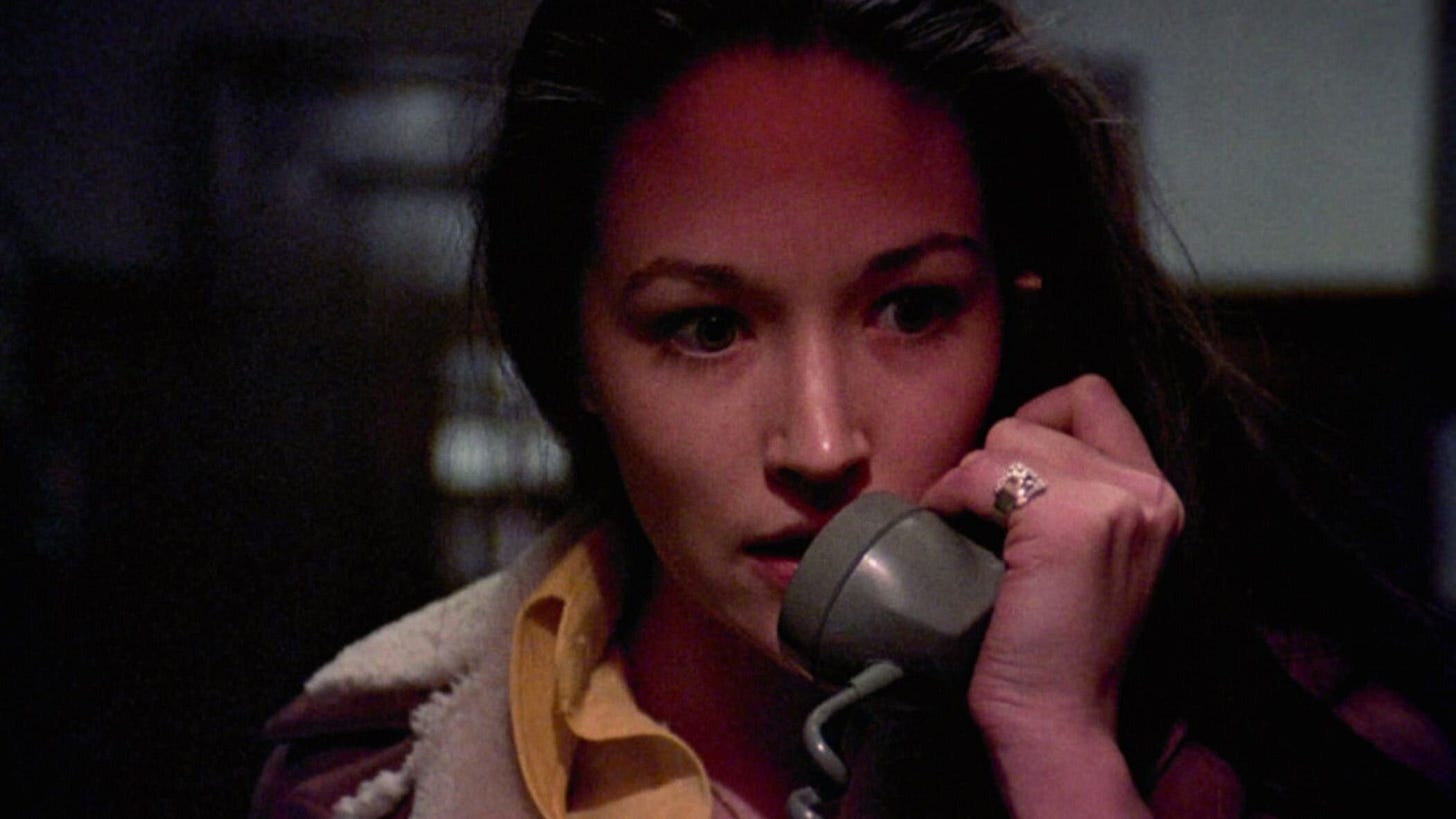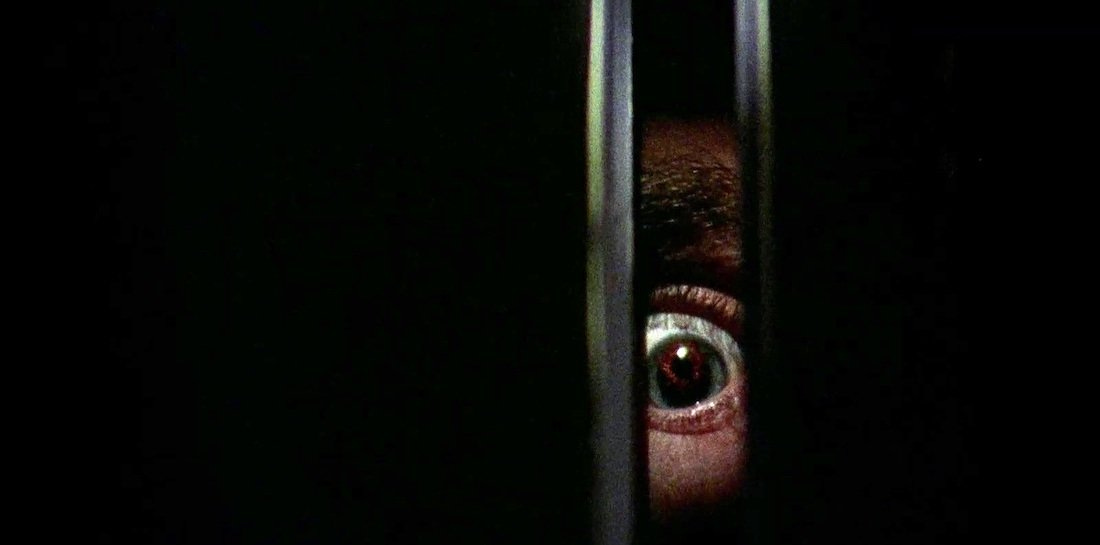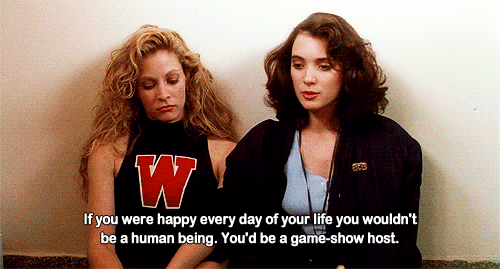Christmas is a time of holiday cheer—exchanging gifts with loved ones, throwing rowdy parties with friends, and sipping warm cocoa while admiring twinkling lights. It’s advertised as the most joyful holiday of all, with catchy tunes and beautiful decor.
But for many, the reality of Christmas is a lot more stressful. Especially today, as people are facing job insecurity and overwhelming financial burdens. With over 77% of American households having some form of debt, it’s no wonder why the holidays feel less like a celebration.
The 1974 slasher classic Black Christmas unintentionally explores these holiday fears. Hidden within its terrifying story lies a metaphor of the suffocating pressures that come with Christmas.
Trapped in Your Own Home
Black Christmas acts as a quintessential home invasion horror film, trapping a group of girls in their own sorority house. They are isolated, helpless, and taunted by a mysterious prank caller who grows increasingly violent.
When their housemate Clare goes missing, her looming disappearance begins to weigh heavy on the girls. Their fear intensifies when they realize they’re being hunted in the one place they should feel safe.
Similarly, people today feel trapped—not by a violent killer, but by financial pressures of the season. Since the mass layoffs that began in 2022, job insecurity has become increasingly more common. In the tech industry, for example, over 384 companies laid off a combination of 124,000 employees.
This, coupled with the recent cost of living crisis, has become cause for concern. The cost of groceries have become the main talk of contention, with some experts suggesting food prices may only get higher. Mass layoffs, skyrocketing living costs, and a rocky job market only means one thing: stress.
This stress is exacerbated during the holidays. 58% of adults reported that “spending too much or not having enough money to spend” causes significant anxiety. Everyday life already feels overwhelming, and with Christmas sprinkled in, people are left feeling imprisoned by their bank accounts.
Much like the girls in the sorority house, people are left feeling trapped, their lives seemingly out of their control. But instead of being stalked by a faceless killer, they’re haunted by financial struggles. The helplessness and tension in Black Christmas prove to be a powerful metaphor for the crushing weight of holiday obligations.
Real-World Holiday Horror
While Black Christmas is only a fictional tale of fear, our reality offers plenty of real horror. With Christmas being the holiday of gift-giving, it’s no surprise that people feel like they have to buy.
People feel pressured into spending during the holidays, but with wages low and living costs high, this can prove to be difficult on both people’s wallets and mental health.
In a recent study, 76% of the Americans surveyed said they felt “money wounds”—emotional distress from financial challenges. With Christmas being promoted as a heavily consumer-based holiday, it’s no surprise that people oftentimes spend money they don’t have on presents and decorations, leading them into even more credit card debt and potential low financial self-esteem.
That means that gifts have to be a tight budget. In another survey conducted by Aflac, 64% of people said “they'll cut back on holiday costs in at least one category.” A smaller budget only makes for a harder time in the store. Coupled with the usual holiday crowds, it makes since why people’s stress levels rise.
On top of this, others feel the need to work overtime to get Christmas money. Some work extra hours, but others, such as many in Gen Z, look to side hustles for extra income.
There’s a sense of disconnect from the holiday with the multiple jobs, lack of funds, and need to secure economic equality. With younger adults especially, the disconnect of the holiday is within the juggling of student debt, inflation, and the job market.
Horror on the Holidays
One may argue that horror should stay out of the holiday season; afterall, it’s a time meant for joy. On the other hand, horror films provide a cathartic release for those that feel the financial pressures of Christmas.
Films like Black Christmas serve as a reminder that it’s okay to not always feel cheerful, and that we as a society need to acknowledge the struggles that some may face during the season. You’re not always going to be happy 24/7, and that’s okay.
Holiday horror films help people feel less alone in their own strife. They highlight real-world issues, even if they’re sometimes hidden under slasher terminology.
Embrace the Holidays
It’s okay to celebrate Christmas without expensive presents or decorations. A small 4-foot tree you got for 30 bucks will bring you just as much joy as an expensive 7-foot tree. Your DIY gifts will be more meaningful than anything you could buy.
Christmas is about love. It’s only advertised to be about the gifts.
Remember: it’s okay for your holidays to be different from everybody else’s. You don’t need to keep up with the Joneses, you just need to be with the people you care about it.
Just like Black Christmas did with the traditional holiday film, you need to challenge “traditional” norms and embrace something different.
Embrace your way of celebrating the holidays. Don’t pay attention to the TikToks and the influencers.
Now, go get some hot cocoa and watch Black Christmas.









